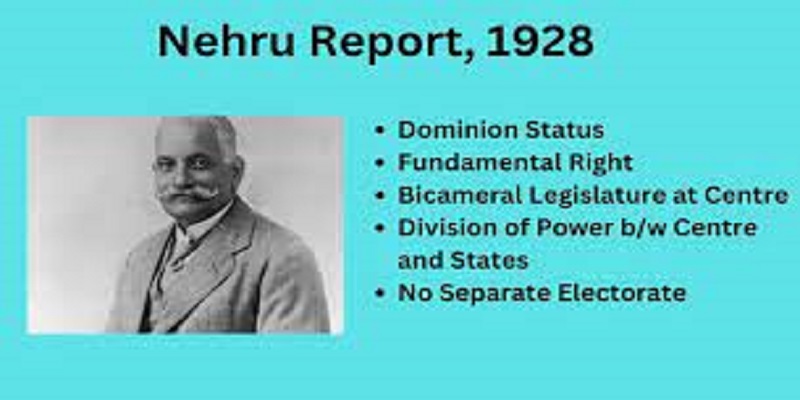Nehru Report 1928 Shaping India's Destiny with Constitutional Vision
The Nehru Report of 1928 was a significant political document in the history of India, reflecting the aspirations and concerns of the Indian National Congress during the pre-independence era. Named after its principal author, Motilal Nehru, the report was a response to the British government's invitation to Indian leaders to propose constitutional reforms for the country. The report aimed to outline a plan for self-government within the framework of the British Empire. This document played a crucial role in shaping the discourse on constitutional reforms and laid the foundation for future political developments in India.
The context of the Nehru Report can be traced back to the Montagu-Chelmsford Reforms of 1919, which introduced a limited form of self-government in British India. However, these reforms fell short of the expectations of Indian nationalists, who sought a more comprehensive and representative system. The dissatisfaction with the 1919 reforms, coupled with the non-cooperation movement and the Simon Commission, set the stage for renewed demands for constitutional reforms.
In 1927, the British government, under the leadership of Prime Minister Stanley Baldwin, appointed the Simon Commission to review the working of the Government of India Act of 1919 and recommend further reforms. However, the commission did not include any Indian members, leading to widespread protests in India. In response to these protests, the British government proposed the formation of an all-party committee of Indian leaders to draft a constitution for the country.
The Indian National Congress, the principal political party advocating for Indian self-rule, appointed a committee chaired by Motilal Nehru to prepare a draft constitution. The committee included prominent leaders such as Tej Bahadur Sapru, Ali Imam, and Sardar Patel. The Nehru Report, submitted to the British government in August 1928, outlined the Congress's vision for the future constitutional structure of India.
The Nehru Report proposed the establishment of a dominion status for India within the British Commonwealth, similar to the self-governing dominions like Canada and Australia. It recommended a federal structure with a strong center and autonomous provinces. The report called for adult suffrage, joint electorates, and reserved seats for minorities to ensure adequate representation for all communities. It also suggested safeguards for religious and cultural minorities, recognizing the diverse nature of Indian society.
One of the crucial aspects of the Nehru Report was its stance on communal representation. While advocating for joint electorates, the report conceded to separate electorates for Muslims only in provinces where they were in a minority. This concession was an attempt to address the concerns of religious minorities and promote communal harmony, but it later became a contentious issue in the lead-up to the creation of Pakistan.
The Nehru Report received mixed reactions from various quarters. While it was hailed by some as a significant step forward in India's constitutional evolution, others criticized it for not going far enough in addressing the concerns of minorities, particularly Muslims. The All India Muslim League, under the leadership of Muhammad Ali Jinnah, expressed dissatisfaction with the report and presented the Fourteen Points as an alternative set of demands.
The contentious issue of separate electorates for Muslims became a focal point of debate and negotiation between the Congress and the Muslim League. The failure to reach a consensus on this issue sowed the seeds for future communal tensions and ultimately contributed to the demand for a separate nation for Muslims, leading to the creation of Pakistan in 1947.
The Nehru Report of 1928 was a landmark document that outlined the Indian National Congress's vision for self-government within the British Commonwealth. It proposed a federal structure, dominion status, and various constitutional reforms aimed at creating a representative and inclusive political system. However, the report's concessions on separate electorates and the subsequent failure to address the concerns of all communities laid the groundwork for future communal tensions in India. Despite its limitations, the Nehru Report remains a significant historical document that reflects the complex and challenging process of nation-building in pre-independence India.

